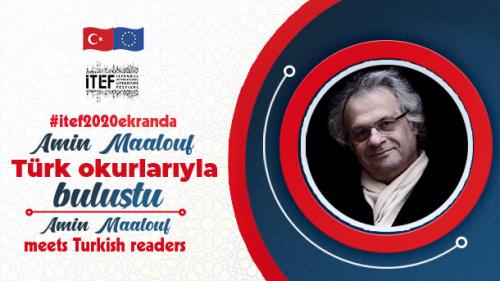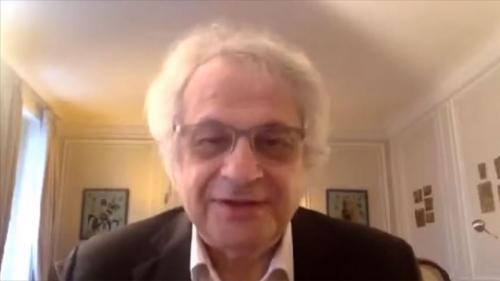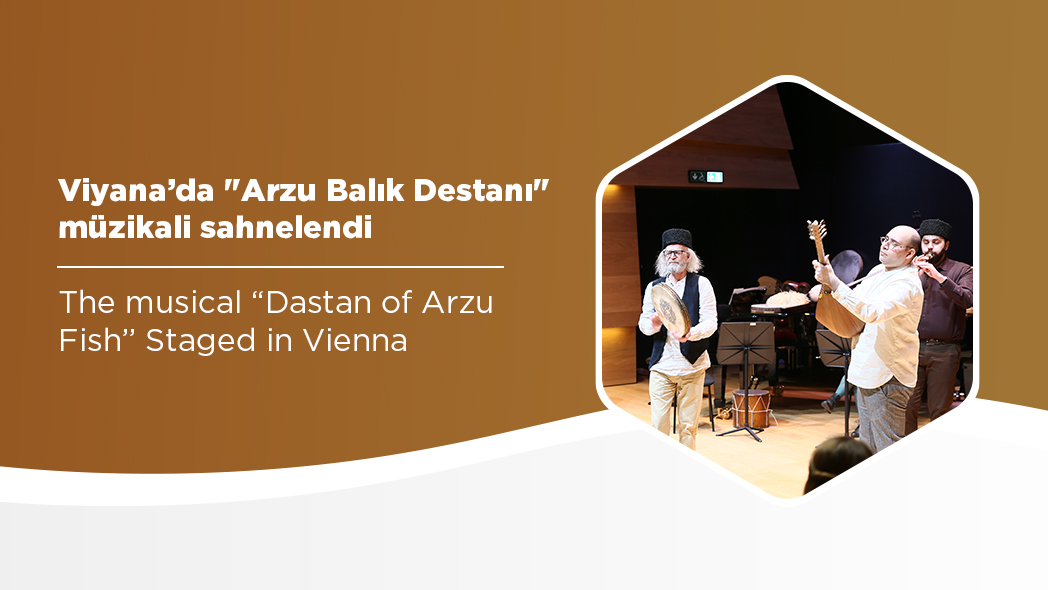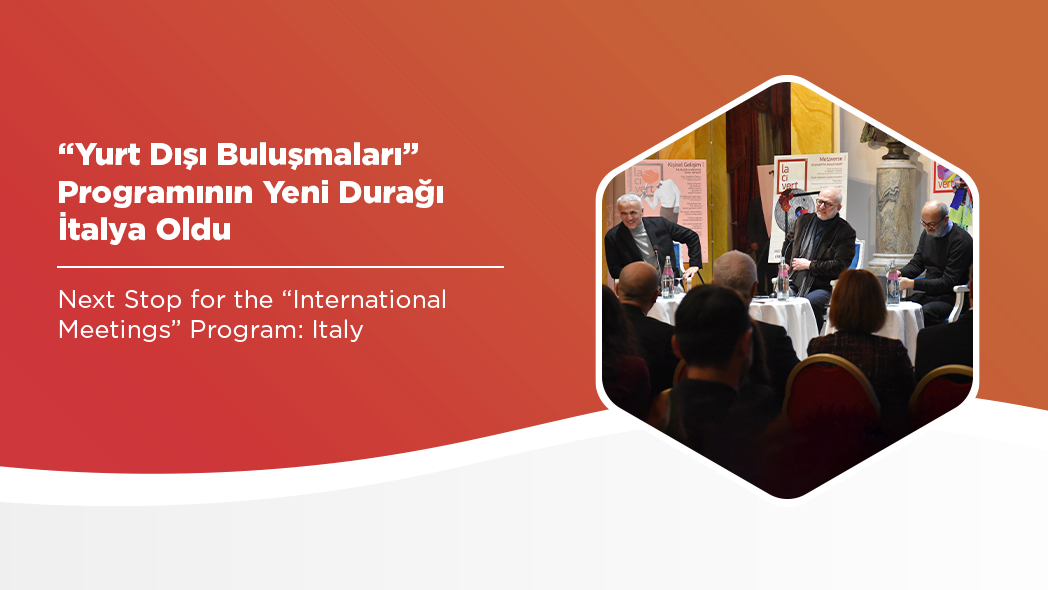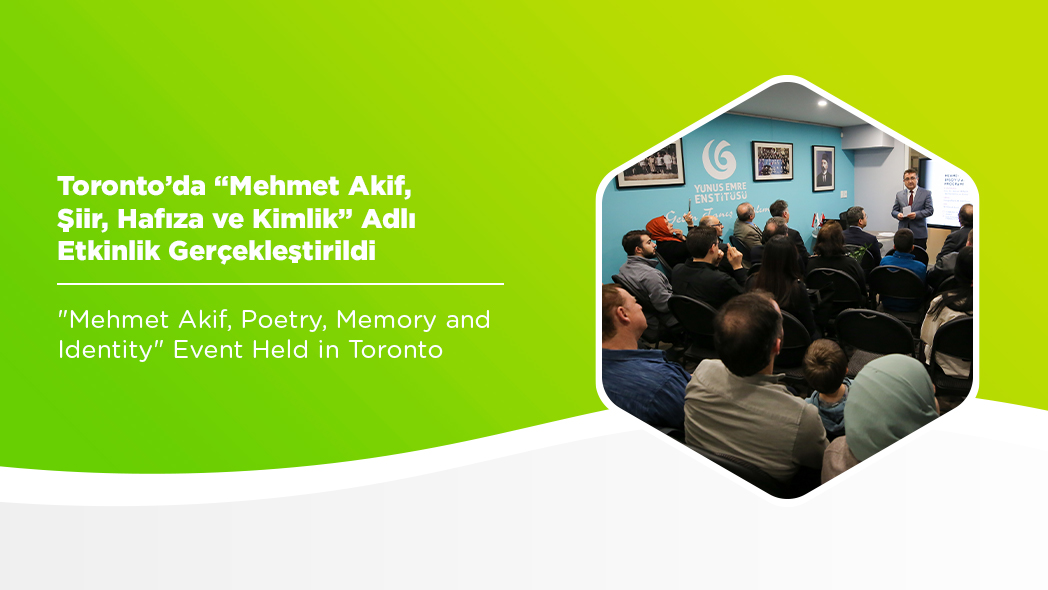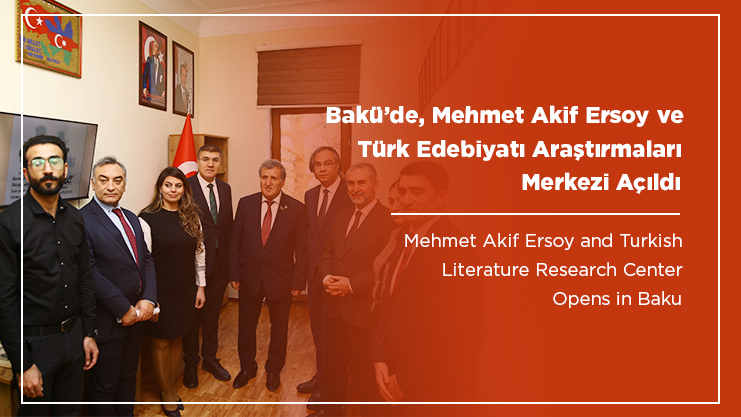Amin Maalouf Meets Turkish Readers
The Istanbul International Literature Festival has brought together the world's leading author Amin Maalouf with Turkish his readers in an online event.
Amin Maalouf, the Lebanese writer whose books have translated into more than 40 books, has attended the opening of the Istanbul International Literature Festival (İTEF), held online this year. At the festival's opening event, aired live on Monday, June 15 from Zoom, Instagram and YouTube, and moderated by writer and journalist Maya Jaggi, Maalouf addressed his fans. With this event, the İTEF became one of the few literature festivals offering simultaneous translation. Although the interview was held in English, the readers were able to watch it with the Turkish language option of Zoom as translator Züleyha Yılmaz provided its simultaneous translation.
Attending the opening event of the festival, organized in partnership with the Turkey Europe Foundation and the Kalem Culture Association, the acclaimed 71-year-old writer talked about himself and his works.
Nermin Mollaoğlu of the Kalem Culture Foundation, one of the sponsors of the program, delivered a keynote speech at the beginning of the event. Maya Jaggi introduced Lebanese-French writer Maalouf as the writer who bridges the Arab-Muslim world with Europe and stated that the interview would focus on Maalouf last two books, Les désorientés (The Disoriented) and Le Naufrage des civilisations (The Wreck of Civilizations).
Famous in Turkey with his books Samarcande (Samarkand), Le Naufrage des civilisations (The Wreck of Civilizations), Les Échelles du Levant (Ports of Call), Les Croisades vues par les Arabes (The Crusades Through Arab Eyes), and Les Identités meurtrières (In the Name of Identity: Violence and the Need to Belong), Amin Maalouf expressed his satisfaction for attending the festival. "It is a great honor for me to be with Turkish readers. It is an incredible initiative to organize the festival under such an extraordinary setting. Of course, we are accustomed to book festivals. (After Covid-19) We should perhaps be more open to such novel relationships with books and festivals. We should adapt to this new system," Maalouf said.
'THE PANDEMIC HAS GOOD ASPECTS AS WELL'
At the beginning of the interview, Jaggi inquired Maalouf concerning his views about the pandemic, noting that he referred to The Wreck of Civilizations as a condolence for the ship of humanity which continues to move forward although it sees the iceberg ahead."
Maalouf noted that this process had disappointments as well as good aspects. "One of its good aspects is that you can attend an event in San Francisco even if you are invited on the same day. Normally, this was not possible. But, there are also certain qualities that are lost. This urges us to adopt a holistic view of the Covid-19 crisis. In addition, there will certainly be changes to every dimension of our lives. We have to be open to them," he said.
'TIME IS OUR MOST IMPORTANT CAPITAL'
Maalouf noted that people would travel frequently before the pandemic.
"Perhaps, there are certain things we can do by traveling less. For example, we may take advantage of the opportunities provided by virtual travels. Personally speaking, for a writer like me, the most important capital is time. So, I try to preserve my time. In particular, virtual relationships, not having to go somewhere, not using the air travel are things that I can easily adapt to," he said.
THOSE WHO EMBRACE DIVERSITY WILL WIN
"Instead of coexistence, we witnessed destruction. The Eastern Mediterranean civilization should have set a model for the entire model. Yet, the exact opposite happened." |
Maalouf talked about his ideas on the history of the Eastern Mediterranean as one of pivotal themes of The Wreck of Civilizations. He noted that he grew up in Beirut, located in this geography. "There, diverse communities and cultures enjoyed good relationships with each other. It was magnificent. Looking at the world today, the situation there was unique. Although we had to build upon it and improve it, the exact opposite happened. Instead of coexistence, we witnessed destruction. The Eastern Mediterranean civilization should have set a model for the entire model. Yet, the exact opposite happened," he said.
"In the late 15th century, Muslims and Jews were exiled from Spain. Spain became poorer due to this exile. This incident took Spain 300 years back." |
Maalouf emphasized that minorities and diverse cultures add value to the country in which they live. "In the late 15th century, Muslims and Jews were exiled from Spain. Spain became poorer due to this exile. If they stayed there, there would be wealth and progress. But they were banished. Most of them went to the Ottoman Empire, the Netherlands and other countries. Here, it was Spain which lost. This incident took Spain 300 years back," he said.
'MY GRANDMOTHER WAS BORN IN ADANA'
Amin Maalouf pointed out that diverse religious, linguistic and cultural communities lived in harmony in the Ottoman Empire, and the idea that the people speaking the same language should have their own state was detrimental to the world. Maalouf noted that his own life story contained much diversity and his grandparents had been born in the Ottoman Empire.
Communities with diverse languages and cultures coexisted perfectly in the same civilization. However, in the 19th century, the idea that the people speaking the same language should have their own state and they should secede if they belong to a different race emerged. I think this idea divides the world. I think this idea has even led to disintegration and victimization of many societies. |
My grandmother had been born in Adana in the late 19th century. I see empires as a nostalgic asset. I cannot deny it altogether. I have a nostalgic past. Communities with diverse languages and cultures coexisted perfectly in the same civilization. However, in the 19th century, the idea that the people speaking the same language should have their own state and they should secede if they belong to a different race emerged. I think this idea divides the world. I think this idea has even led to disintegration and victimization of many societies. Today, people enjoy separation or division. If someone is somewhat different from another, he quickly decides to separate. I don't know if we will ever be able to learn how to live together and respect each other. But, we are currently moving in the opposite direction. The relations between different groups have become more destructive and more violent. Unfortunately, I don't think this movement will change," he said.
Maalouf indicated even if he is not too naive to think old empires may or should return, he believes that there is much to learn from the idea of coexistence. He noted that everyone living in the Roman Empire was treated as a Roman citizen regardless of their religions, languages or races.
THE DISORIENTED HAS TRACES OF THE LEBANESE CIVIL WAR
When Jaggi asked Maalouf what motivated him for writing fiction in the early 1980s, Maalouf said that he believed he could use fiction to better express certain topics. Maalouf stated that all his books gave generally the same message. He noted that in The Disoriented, not a single reference to Lebanon was made, his memories about the civil war in Lebanon influenced significantly the writing of the book.
LEBANON IS GOING THROUGH HARD TIMES
Toward the end of the interview, Jaggi asked Maalouf about his views on the civil protests that started in Lebanon on October 17, 2019. Maalouf responded by saying that he was sad to note that Lebanon will be faced with many economic and social hardships.
'WE SHOULD DREAM OF FINDING A BETTER WORLD'
"Today, it is hard to utter the truth without fear as we are going through hard times, but we, as writers, have no right for being afraid. Our duty is to collect all elements of hope. We should not lose our hopes. Of course, we are hopeful." |
Noting that writers do not have the luxury of being afraid, Maalouf told young people and children that they should never lose their hope for a better world. "Today, it is hard to utter the truth without fear as we are going through hard times, but we, as writers, have no right for being afraid. Our duty is to collect all elements of hope. We should not lose our hopes. Of course, we are hopeful. We are currently living at a time when we discover what is wrong with the world. We should learn a lesson from this experience and we should think differently and have a dream for finding a better world, where injustice and violence can be eliminated. We should stick to hope. We should make use of our experience and think about them. This is the duty of both our and next generations," he said.
The event, themed as "Sunflower Literature" and tagged as #itef2020onair, will host 13 writers including Alejandro Zambra, Yan Lianke, Jeff Moore, Vladimir Pistalo, Darren Simpson, Eva Meijer, and David Nicholls until June 19.
In September, #itefonthestreet will bring together Turkish and foreign writers with literature fans in Istanbul's cultural venues.
ABOUT AMIN MAALOUF
Amin Maalouf earned international recognition with his book Les Croisades vues par les Arabes (The Crusades Through Arab Eyes), and was awarded Goncourt Academy Literature Prize in 1993. His books include: Les Croisades vues par les Arabes (The Crusades Through Arab Eyes) (1983), Léon l'Africain (Leo Africanus) (1986), Samarcande (Samarkand) (1988), Les jardins de lumière (The Gardens of Light) (1991), Le Premier siècle après Béatrice (The First Century after Beatrice) (1992), Le Rocher de Tanios (The Rock of Tanios) (1993), Les Échelles du Levant (Ports of Call) (1996), Les Identités meurtrières (In the Name of Identity: Violence and the Need to Belong) (1998), Le Périple de Baldassare (Balthasar's Odyssey) (2000), L'Amour de loin (Love from Afar) (2002), Adriana Mater (2003), Le Dérèglement du monde (Disordered World) (2009), Les désorientés (The Disoriented) (2012), and Le Naufrage des civilisations (The Wreck of Civilizations) (2019).
ABOUT İTEF
Istanbul International Literature Festival #itef2020onair is undertaken under the leadership of Istanbul Hungarian Cultural Center within the context of Diversity in Unity: Intercultural Dialogue Through the Waves of Danube, a project implemented as part of the EU-Turkey Intercultural Dialogue Programme.
The EU-Turkey Intercultural Dialogue Programme is implemented by Yunus Emre Institute and co-financed under the financial cooperation project for strengthening the civil society between the European Union and the Republic of Turkey.
The programme supports the platform projects for facilitating mutual understanding of diverse cultures between Turkey and EU members, developing different cultural activities for experiencing social developments from different perspectives and establishing permanent dialogue between institutions.

